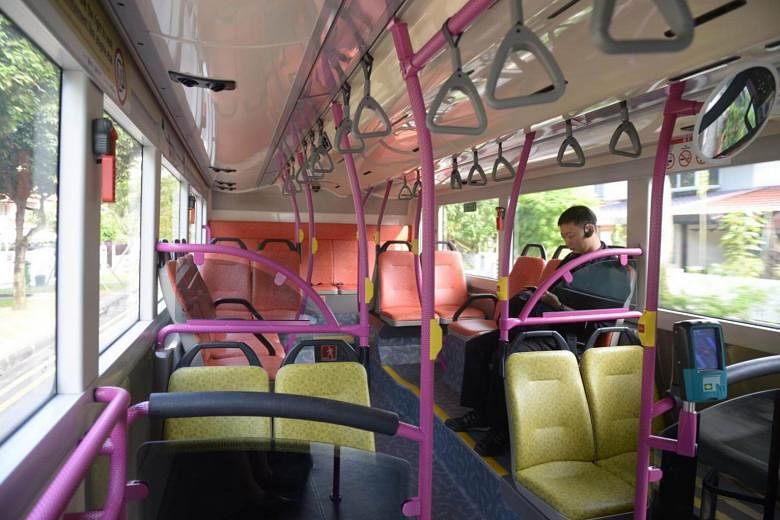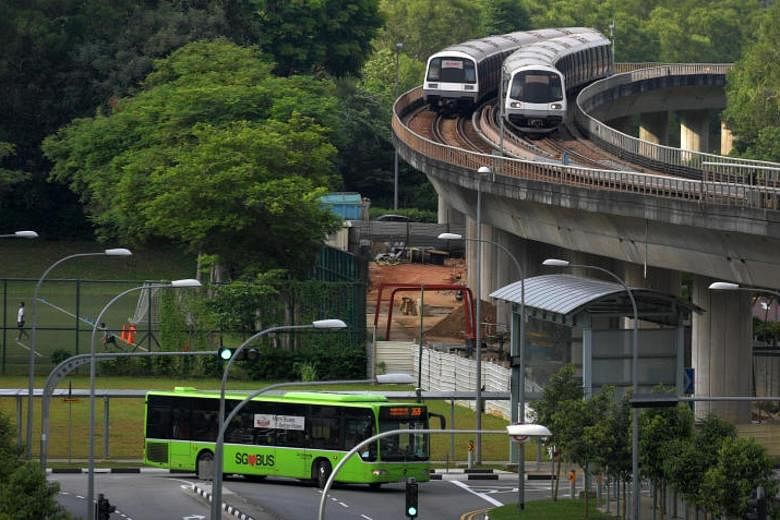SINGAPORE - Cheaper fares for off-peak public transport commuters could become a permanent feature.
According to Public Transport Council (PTC) chairman Richard Magnus in a blog post on Thursday (Oct 19), the council has been asked by the Transport Ministry to review the findings of the Free Pre-Peak Travel and the Off-Peak Pass trials.
The Transport Ministry announced in June that the PTC will review the Free Pre-Peak Travel and Off-Peak Pass schemes in the light of the increased capacity of Singapore's public transport network.
The two schemes aimed to help ease peak-period congestion on the rail network.
More than 65,000 commuters currently benefit from the Free Pre-Peak Travel scheme, which was introduced in 2013.
It allows commuters to travel for free if they reach any of 18 MRT stations in the city area - including Bayfront, Raffles Place and Tanjong Pagar - before 7.45am.
A discount of up to 50 cents is given to those who alight at these stations between 7.45am and 8am.
The Off-Peak Pass scheme, which was introduced in 2015, sees an average of 13,000 off-peak passes sold each month. The pass, at $80 a month, allows adult commuters to enjoy unlimited rides on buses and trains during off-peak hours on weekdays and all day on weekends and public holidays.
In his blog, Mr Magnus said the aim was "to assess if tiered or differentiated fares to incentivise off-peak travel on public transport should become a permanent feature".
"The concentration of travel within a few hours each day is resource-intensive and inefficient," he noted. "A more sustainable solution is to spread out travel demand across the day."
The chairman said Singapore's experiment with differentiated fares was not new. Several major cities, including Sydney and London, have been differentiating peak and off-peak fares "with some success".
"The council is therefore evaluating travel patterns to determine how a differential fare mechanism can best help smoothen travel demand in Singapore," he wrote.
In his post, Mr Magnus noted that the Government will spend $20 billion on new rail infrastructure over the next five years, on top of a $4 billion investment in the upgrading and expansion of rail operating assets, and another $4 billion on bus contracting subsidies.
"While these investments are a necessary part of the Government's push to improve the public transport experience, they raise operating costs and impose a heavy cost burden on taxpayers," he said.
"The council therefore cannot turn a blind eye to this trend of rising costs but will have to ensure that the viability of the public transport system is sustained."
Mr Magnus said the PTC is now in the midst of its annual fare review exercise, and is reviewing the 2017 fare adjustment and rail operators' proposals "against this background".
Citing a Singapore University of Social Sciences study, which compared Singapore's transport fares with those of 35 other cities worldwide, Mr Magnus said rail fares here are among the lowest in Asia, and are "considerably lower" than those of cities in Australia, Europe and North America.
Commuters he talked to in focus group discussions agreed that fares here were affordable, he added.
"We must, and will, continue to keep the voices of our commuters firmly at the forefront, even as we consider the rising costs."


